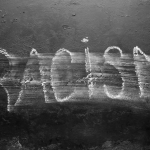Article by Peter Koeppel, member of Trinity Memorial Church in Binghamton. Koeppel serves on the diocesan Stewardship Resources team and the diocesan Creation Care Initiative and is a frequent contributor on the topics of creation care, stewardship, and racial justice and reconciliation.
Have you ever been objectified into a number? If your job has moved out of the Diocese of Central New York to maybe a southern State, or out of the United States altogether, you probably were nothing but a number—your family, your commitments, your cares, your loves meant nothing; all that mattered was whether someone, somewhere else, could do your work for less money. What mattered was what you cost your employer. When we hear debates over whether special unemployment support should be offered to all whose income is impacted by COVID-19, some of the points raised in that debate again come dangerously close to objectifying us into a number, and some of those points ignore that we have worries and cares: about just staying afloat; about keeping our families fed, clothed, sheltered and healthy.
That tension between recognizing us as merely an abstract number versus recognizing us as a human being with cares, loves, families, and friends—embedded in communities—is also visible many times in the New Testament. On a previous occasion, we looked at the Parable of the Workers in the Vineyard (Matthew 20:1-16). Jesus’ phrasing an explanation of God’s kingdom in terms of daily wages would not have been lost on his listeners—obtaining a daily wage was critical to the well-being and survival of a worker and his family.
To the workers the land owner called upon at 9:00 in the morning, the vineyard owner explicitly states: “You also go and work in my vineyard, and I will pay you whatever is right.” “Whatever is right”—we, of course, have the benefit of knowing how this parable ends: whether the worker started to toil at daybreak, at 9:00 in the morning, or even much later in the afternoon, everyone gets a day’s wages. This land owner surely understood his worker’s cares and worries. Is this message truly only applicable to God’s Kingdom, or should we heed it in our daily, secular lives? Merely asking that question feels just plain wrong: as if our daily lives and our Christian faith could truly be separated. Perhaps we should look at each occurrence of us compartmentalizing one from the other as an opportunity to wake up, to realize that we have missed a mark, and to try again. God is always ready to lovingly receive us back.
As we look at our many connections and communities in which we are embedded, one that we should treasure particularly at this time is our church community: where we are accepted, and we accept everyone else, just the way we all are. We may not share political views, we may not share economic or social values as we enter into this community. Instead, what unites us is a bond stronger than any of these differences, which otherwise might push us apart: the shared love of God, Father, Son and Holy Spirit, and for never giving up making this—HIS—world and all that lives therein, and entrusted to us and our stewardship, a place that every day resembles the love and justice of God’s kingdom a little more. In that striving for a better world, we may indeed find that what initially separates us, could contribute to a richer understanding of what unites us.
So, as we enter the church season where we focus on our stewardship specifically in the context of our congregations, and we are challenged to put a number before God and in writing, let us give our church community the place it deserves in our lives. Let our congregation be recognized as the place where we’re never just a number—not the number on our pledge card, not any other number—but where we are recognized as persons with cares, sorrows, scars, and sometimes wounds, who love each other, support each other, and who support our congregation’s mission in God’s world through cheerful donations of time, treasure, and talent, each of us as God is calling us.


